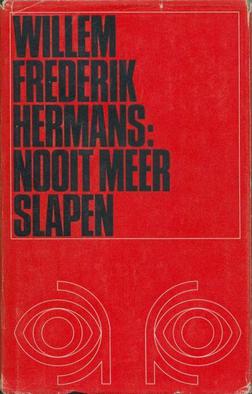November 28 is the 332nd day of the year in the Gregorian calendar; 33 days remain until the end of the year.

The culture of the Netherlands is diverse, reflecting regional differences as well as the foreign influences built up by centuries of the Dutch people's mercantile and explorative spirit. The Netherlands and its people have long played an important role as centre of cultural liberalism and tolerance. The Dutch Golden Age is popularly regarded as its zenith.
Dutch language literature comprises all writings of literary merit written through the ages in the Dutch language, a language which currently has around 23 million native speakers. Dutch-language literature is the product of the Netherlands, Belgium, Suriname, the Netherlands Antilles and of formerly Dutch-speaking regions, such as French Flanders, South Africa, and Indonesia. The Dutch East Indies, as Indonesia was called under Dutch colonization, spawned a separate subsection in Dutch-language literature. Conversely, Dutch-language literature sometimes was and is produced by people originally from abroad who came to live in Dutch-speaking regions, such as Anne Frank and Kader Abdolah. In its earliest stages, Dutch-language literature is defined as those pieces of literary merit written in one of the Dutch dialects of the Low Countries. Before the 17th century, there was no unified standard language; the dialects that are considered Dutch evolved from Old Frankish. A separate Afrikaans literature started to emerge during the 19th century, and it shares the same literary roots as contemporary Dutch, as Afrikaans evolved from 17th-century Dutch. The term Dutch literature may either indicate in a narrow sense literature from the Netherlands, or alternatively Dutch-language literature.

Timothy Harold Parks is a British novelist, author of nonfiction, translator from Italian to English, and professor of literature.

Hélène "Hella" Serafia Haasse was a Dutch writer, often referred to as the "Grande Dame" of Dutch literature, and whose novel Oeroeg (1948) was a staple for generations of Dutch schoolchildren. Her internationally acclaimed magnum opus is Heren van de Thee, translated to The Tea Lords. In 1988 Haasse was chosen to interview the Dutch Queen for her 50th birthday after which celebrated Dutch author Adriaan van Dis called Haasse "the Queen among authors".
The Scott Moncrieff Prize, established in 1965, and named after the translator C. K. Scott Moncrieff, is an annual £2,000 literary prize for French to English translation, awarded to one or more translators every year for a full-length work deemed by the Translators Association to have "literary merit". The Prizes is currently sponsored by the Institut Français du Royaume Uni. Only translations first published in the United Kingdom are considered for the accolade.
The Independent Foreign Fiction Prize (1990–2015) was a British literary award. It was inaugurated by British newspaper The Independent to honour contemporary fiction in translation in the United Kingdom. The award was first launched in 1990 and ran for five years before falling into abeyance. It was revived in 2001 with the financial support of Arts Council England. Beginning in 2011 the administration of the prize was taken over by BookTrust, but retaining the "Independent" in the name. In 2015, the award was disbanded in a "reconfiguration" in which it was merged with the Man Booker International Prize.
The Oxford-Weidenfeld Translation Prize is an annual literary prize for any book-length translation into English from any other living European language. The first prize was awarded in 1999. The prize is funded by and named in honour of Lord Weidenfeld and by New College, The Queen's College and St Anne's College, Oxford.
The Jewish Quarterly-Wingate Literary Prize is an annual British literary prize inaugurated in 1977. It is named after the host Jewish Quarterly and the prize's founder Harold Hyam Wingate. The award recognises Jewish and non-Jewish writers resident in the UK, British Commonwealth, Europe and Israel who "stimulate an interest in themes of Jewish concern while appealing to the general reader". As of 2011 the winner receives £4,000.

Dutch Indies literature or Dutch East Indies literature is the Dutch language literature of colonial and post-colonial Indonesia from the Dutch Golden Age to the present day. It includes Dutch, Indo-European and Indonesian authors. Its subject matter thematically revolves around the VOC and Dutch East Indies eras, but also includes the postcolonial discourse.

Beyond Sleep is a novel by the Dutch writer Willem Frederik Hermans, published in February 1966. The protagonist, Dutch geologist Alfred Issendorf, has a geology dissertation in preparation, and embarks on an expedition to Finnmark, northern Norway, to verify his dissertation director's theory that craters in the local landscape were formed by meteor impacts rather than by Ice Age glaciers. Initially he is accompanied by a group of three Norwegian students of geology, but soon after two travel their own course Alfred loses his guide Arne, who falls to his death, and is then on his own in a land where the sun never sets.
The Premio Valle-Inclán is a literary translation prize. It is awarded by the Society of Authors (London) for the best English translation of a work of Spanish literature. It is named after Ramón del Valle-Inclán. The prize money is GBP £2,000.
The Schlegel-Tieck Prize for German Translation is a literary translation award given by the Society of Authors in London. Translations from the German original into English are considered for the prize. The value of the prize is £3,000. The prize is named for August Wilhelm Schlegel and Ludwig Tieck, who translated Shakespeare to German in the 19th century.
LGBT writers in the Dutch-language area are writers from de Lage Landen, that is Flanders and the Netherlands,
Christopher Colin MacLehose CBE, Hon. FRSL is a British publisher notable as publisher of Harvill Press, where his successes included bringing out the stories of Raymond Carver and Richard Ford for the first time in Britain. Having published works translated from more than 34 languages, MacLehose has been referred to as "the champion of translated fiction" and as "British publishing's doyen of literature in translation". He is generally credited with introducing to an English-speaking readership the best-selling Swedish author Stieg Larsson and other prize-winning authors, among them Sergio De La Pava, who has described MacLehose as "an outsize figure literally and figuratively – that's an individual who has devoted his life to literature". From 2008 to 2020 he was the publisher of MacLehose Press, an imprint of Quercus Books, and in 2021 founded the Mountain Leopard Press, an imprint of the Welbeck Publishing Group.
The Vondel Prize is a literary translation prize, for full-length works from the Dutch into English. The prize was established in 1996 by the Foundation for the Production and Translation of Dutch Literature, and is named after the 17th-century Dutch writer Joost van den Vondel.




